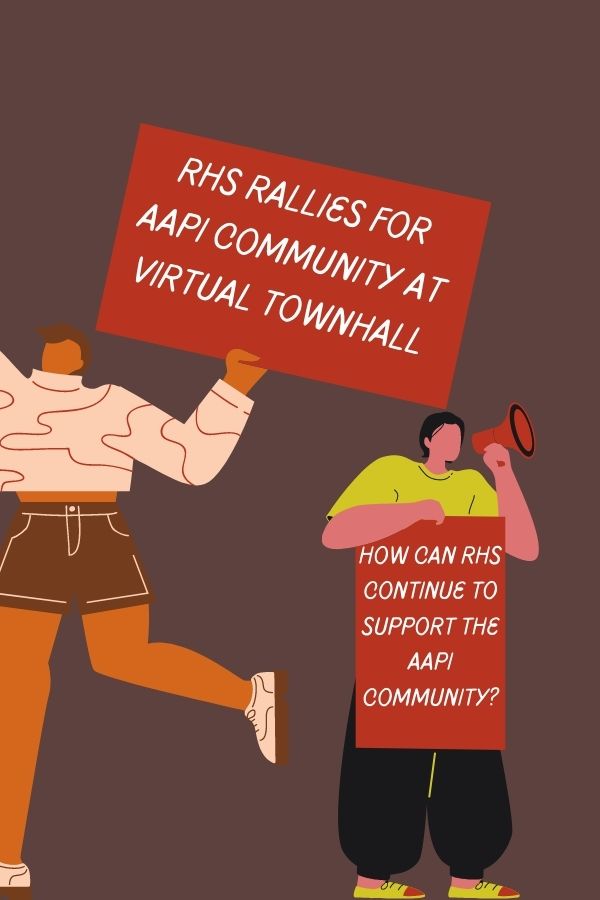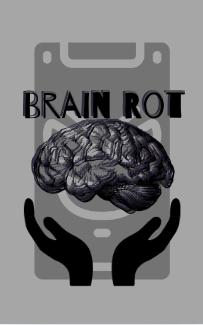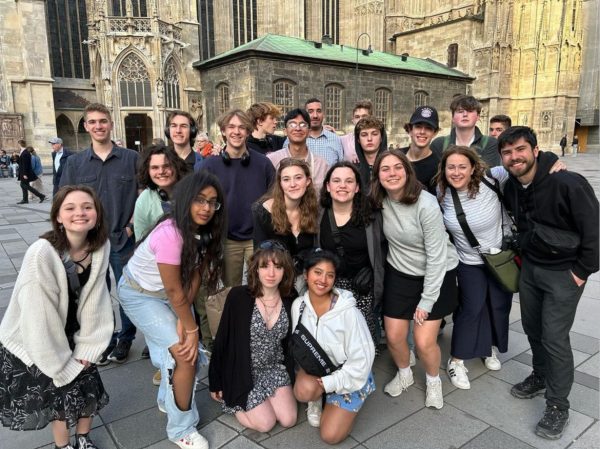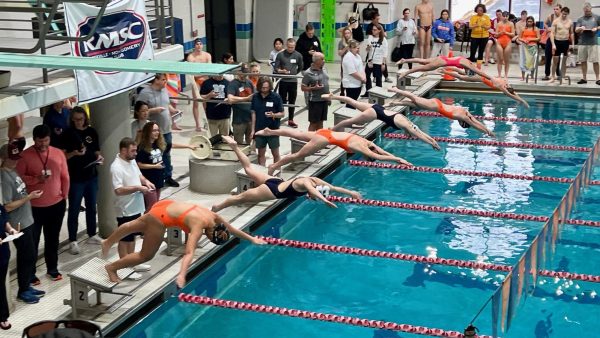Students Support AAPI Community at Town Hall Meeting
RHS students continue to support issues of social justice through SGA organized town hall meetings.
March 25, the RHS SGA organized the virtual “Racism is the Virus” town-hall meeting. In light of increased violence against the Asian American Pacific Islander (AAPI) community, students and faculty from RHS assembled to learn about and discuss what the AAPI community has had to undertake.
Following the onset of the Covid-19 pandemic, the AAPI community endured an increase in episodes of hate-fueled violence and harassment across the country. Individuals of AAPI descent have been beaten, shoved, spit-on and called slurs. AAPI owned businesses have also been vandalized. Howard County Police have reported a cluster of burglaries, four of which were against Asian-owned businesses: Urban Hot Pot, Bonchon, Kung-Fu Tea and East Moon Asian Bistro.
“This town hall was very important to have because there has been a big increase in anti-Asian hate and racism throughout our country amidst a global pandemic,” SGA vice president and Asian-American Kaitlyn McMahon said.
The town hall served as a way to inform the non-AAPI community of what Asians and Pacific Islanders go through. Students, staff and administration from RHS and other schools across the county noted explanations of cultural appropriation, the Model-Minority Myth, xenophobia and local incidents of anti-AAPI violence and harassment. Student voices were at the forefront of the conversation.
“There are plenty who don’t understand what Asian Americans and Pacific Islanders are going through or how they are being racist towards AAPI, so the town hall was a perfect way to clear up misconceptions and educate the community,” McMahon said.
The meeting also gave participants the chance to ask questions, share their experiences and educate each other with conversations in breakout rooms and whole group discussions.
“Hearing the experiences of students in our community and actual experiences of people we know was really important,” math teacher Carolyn Lane said.
Meanwhile, participants examined microaggressions and the Model Minority Myth. As the town-hall defined it, “the Model Minority Myth is the myth that Asian-Americans were able to overcome the disadvantages of being a minority due to their ‘superior’ culture.”
While the stereotypes may appear positive, the Model Minority Myth is used to obscure the microaggressions, poverty and racism the AAPI community faces.
“[Members of the AAPI community] are expected to be a group of intelligent and hard-working individuals who thrive in our society, but that is a completely unrealistic expectation,” McMahon said. “The Model Minority Myth also creates wedges between AAPI and other minorities that are also being discriminated against.”
A call to action followed the town hall meeting as students and staff were urged to further educate themselves in order to create a more inclusive environment. Student speakers implored participants to become anti-racist.
Anti-racism is the concept that one’s activism goes beyond just not being racist. Someone who is anti-racist is an active advocate for oppressed and margininalized groups. A first step to evolve into an anti-racist would be to learn about how racism harms society and the individuals facing it.
As a teacher who does not belong to the AAPI community, Lane plans on putting the new information from the town hall into action.
“Taking that awareness and making sure when I’m out in public and seeing something going on, saying something. Knowing what my students are going through and always being there if they want to talk about it. If they need help and being on the lookout for it,” Lane said. “Making sure that you’re not a bystander and just watching it happen.”
Town-hall participants expressed an interest to support the AAPI community and wished to learn more. The town-hall served as an outlet for participants to learn and engage in conversations about racism. At the same time there were students who didn’t get to attend the town hall or who may be indifferent to the racism faced by the AAPI community.
In order to create a more inclusive community, some students and faculty believe that the information should be spread to all students.
“Bringing some of [the town-hall] information back to people who didn’t get to attend the town-hall [will] help others know what’s going on,” Lane said. “I think the more people learn about each other and the more they learn about what’s going on with other people, the more compassion people are going to have.”
McMahon proposes that student committees work together with teachers and faculty to target diversity and inclusion and focus on what it means to be anti-racist.
McMahon has encountered microaggressions throughout her life, she’s “dismissed and pushed through because this behavior is so normalized in society and never called out or addressed,” she said.
McMahon also addressed the students who may be indifferent to the struggles of Asian Americans and Pacific Islanders.
“If someone is indifferent to the struggles of the AAPI community, that’s because you have never and will never be able to understand and experience what it’s like,” McMahon said. “You should recognize your privilege and be fighting against racism.”
Isabella Amador is a senior and the Editor-in-Chief after being associate editor her junior year and starting as a staff writer her sophomore year. She...









